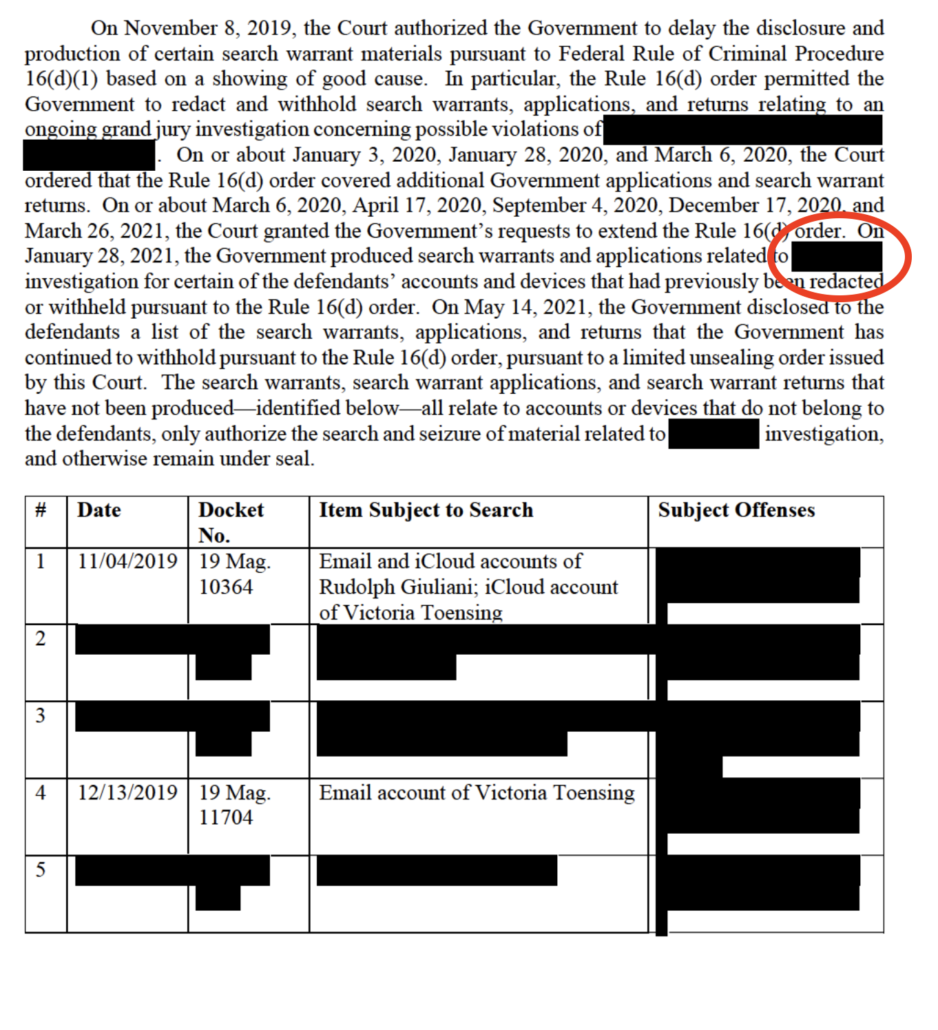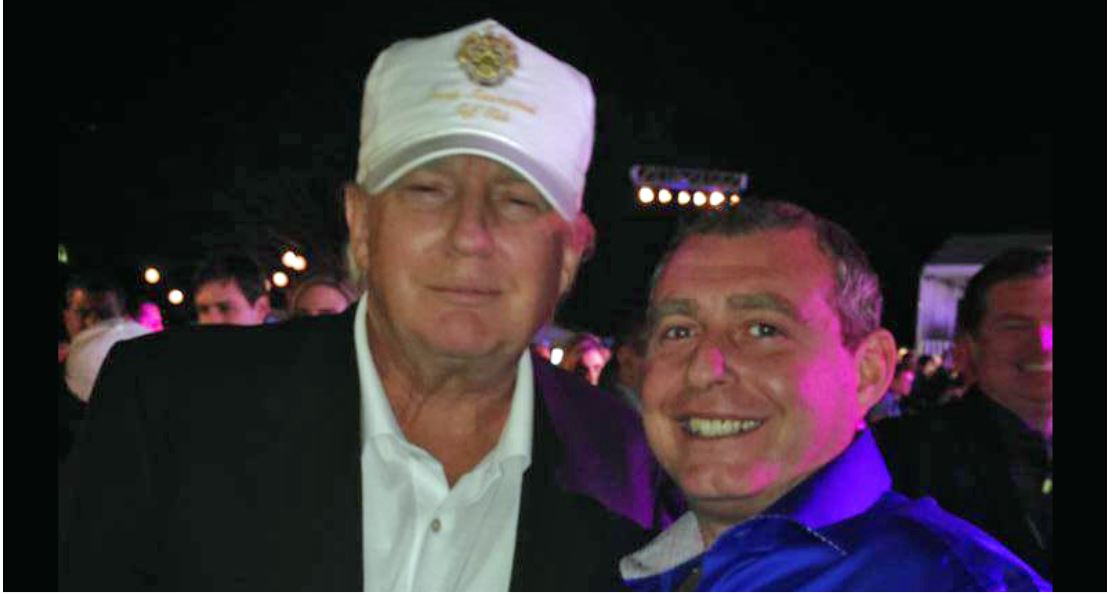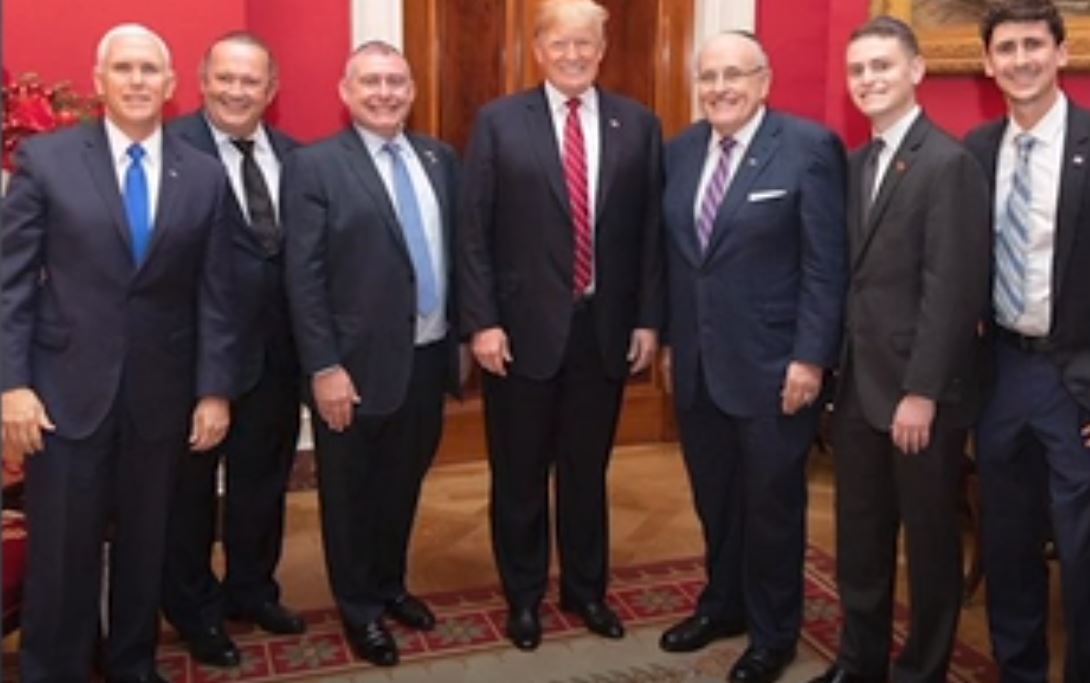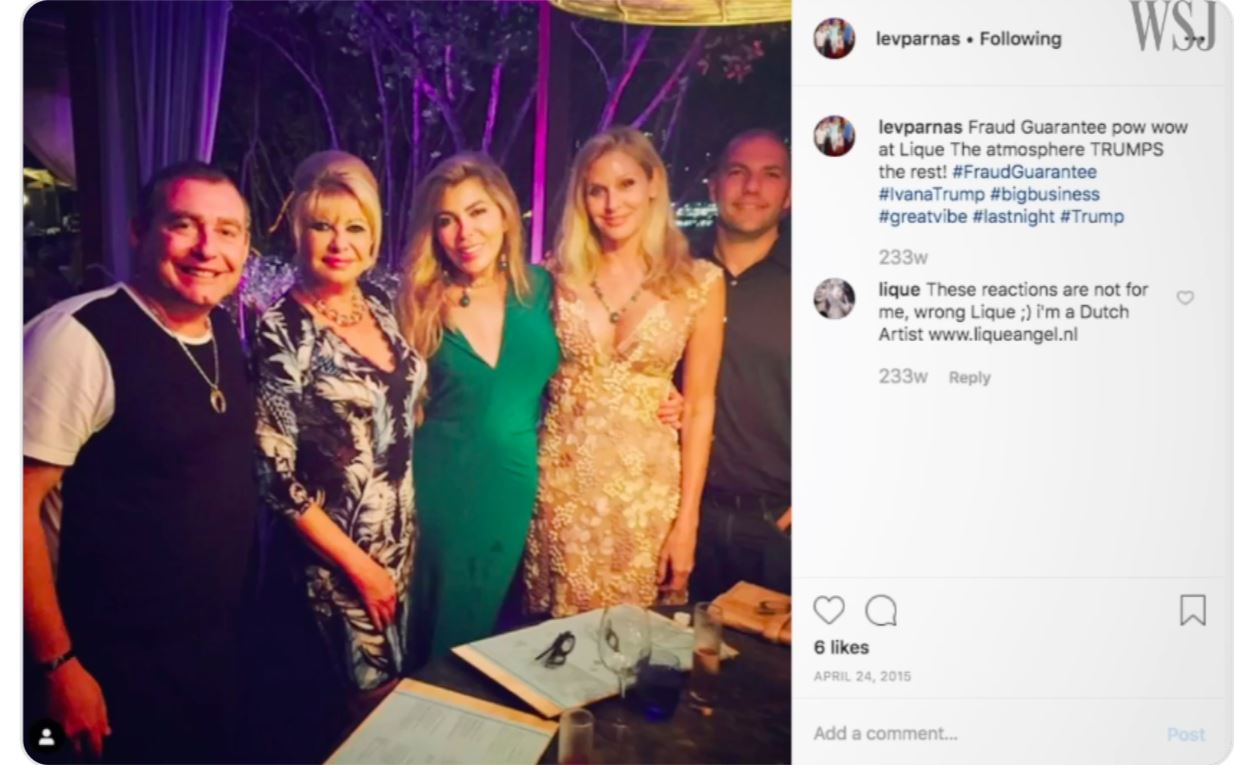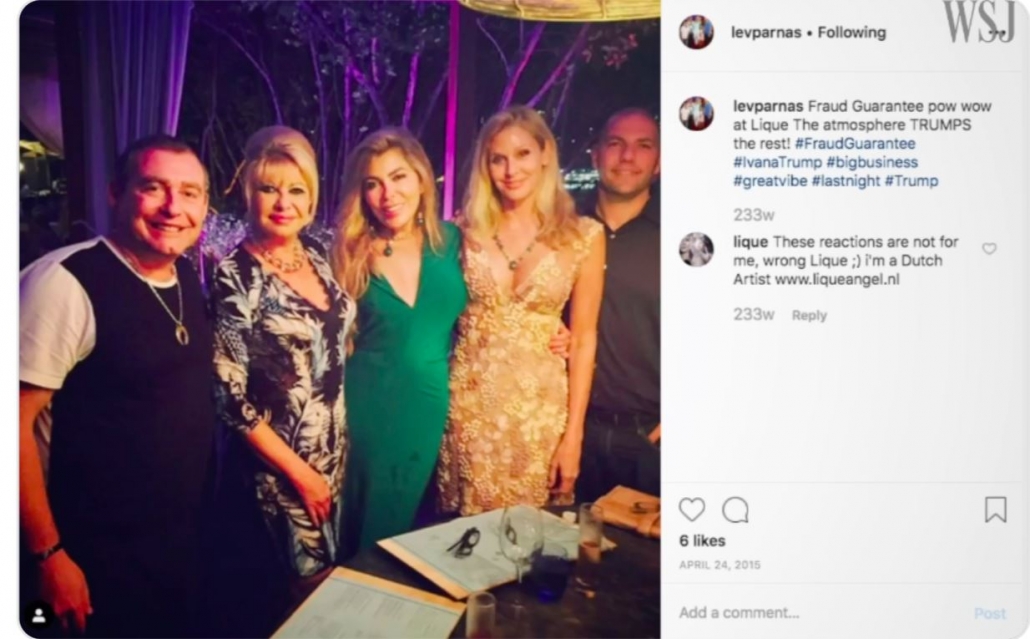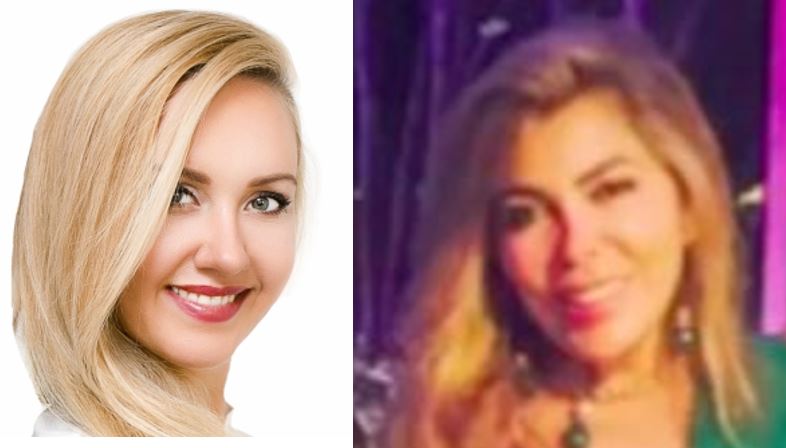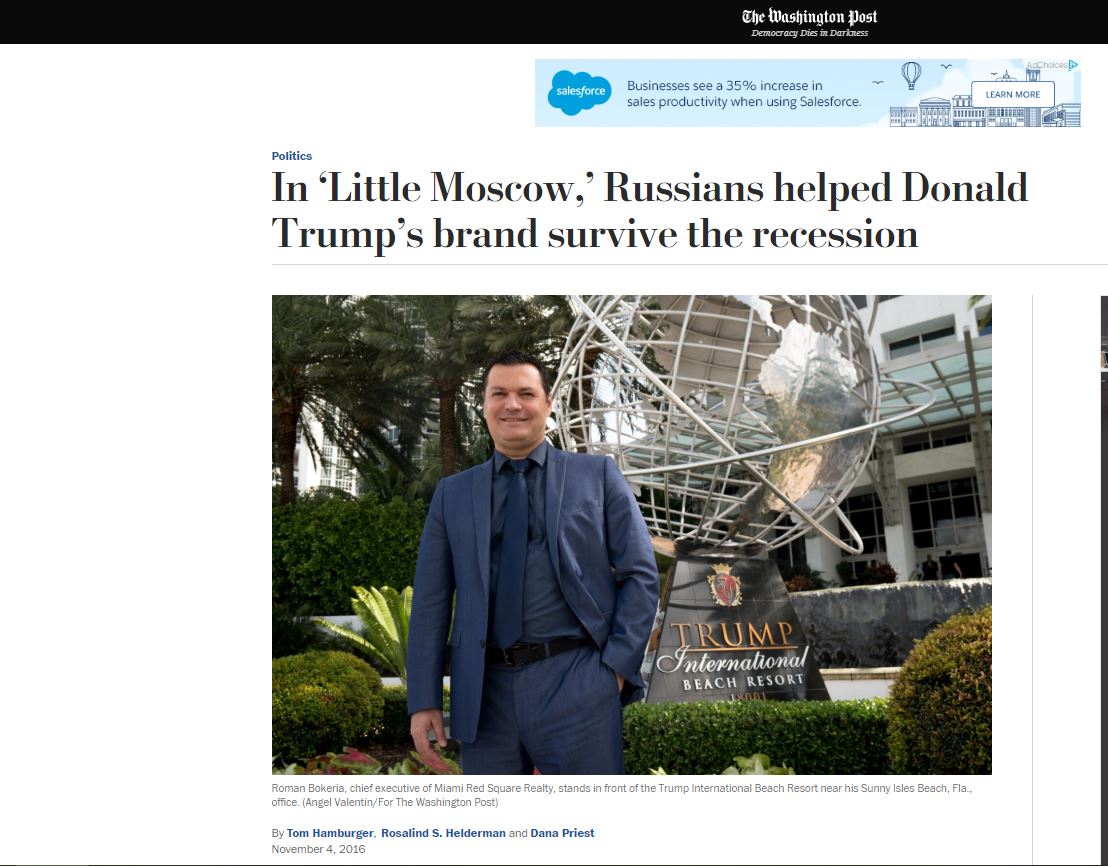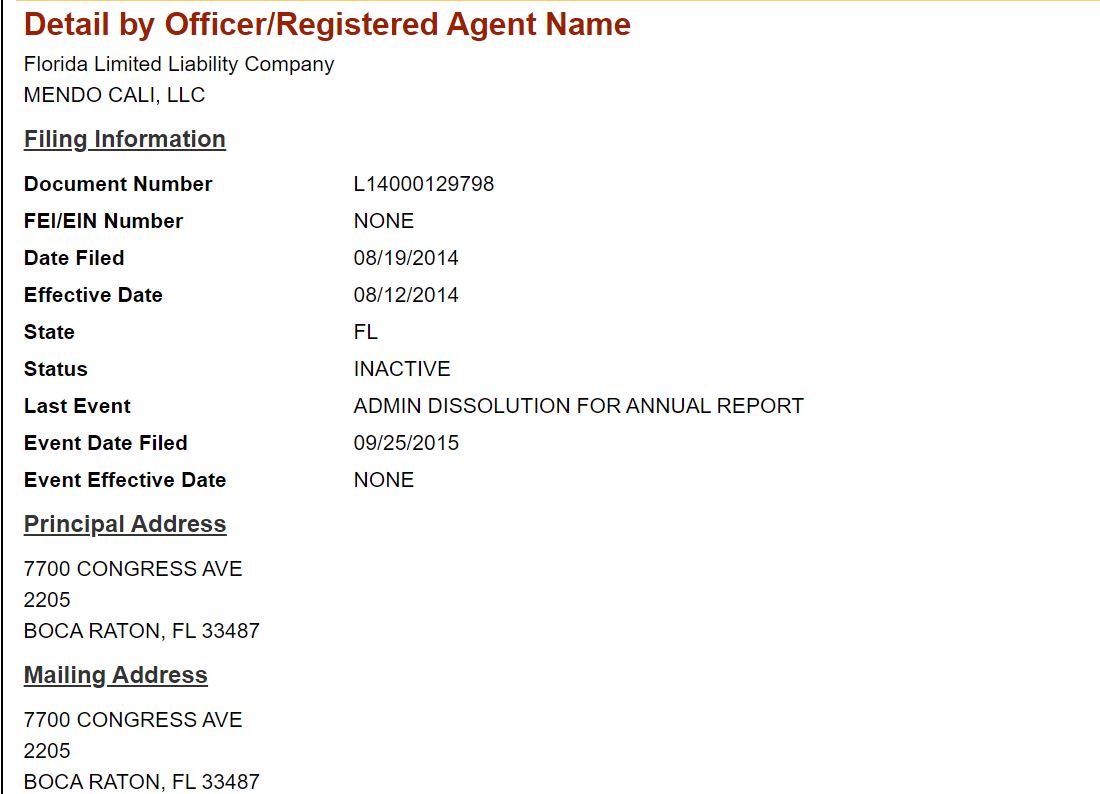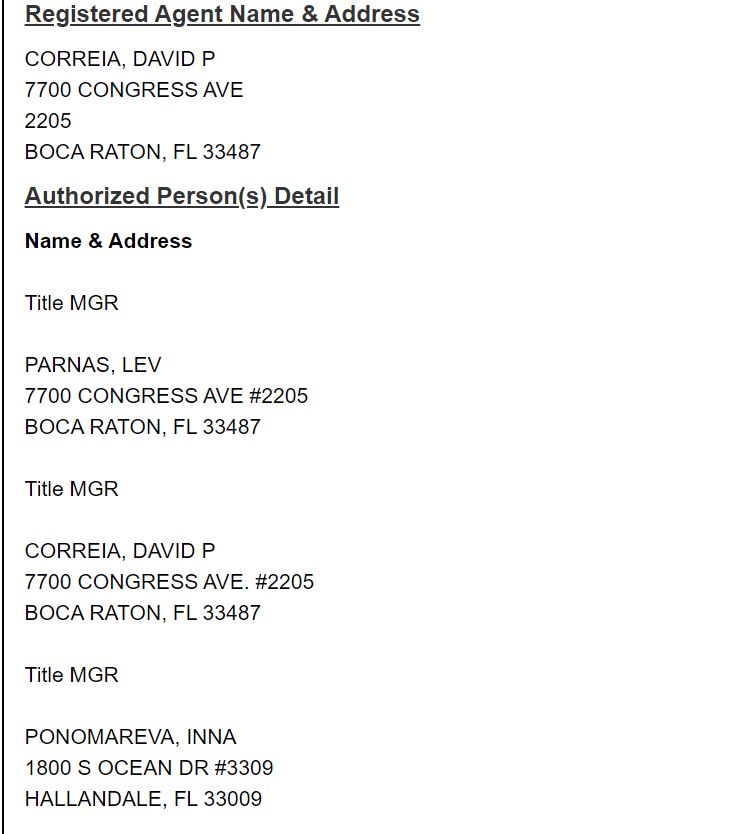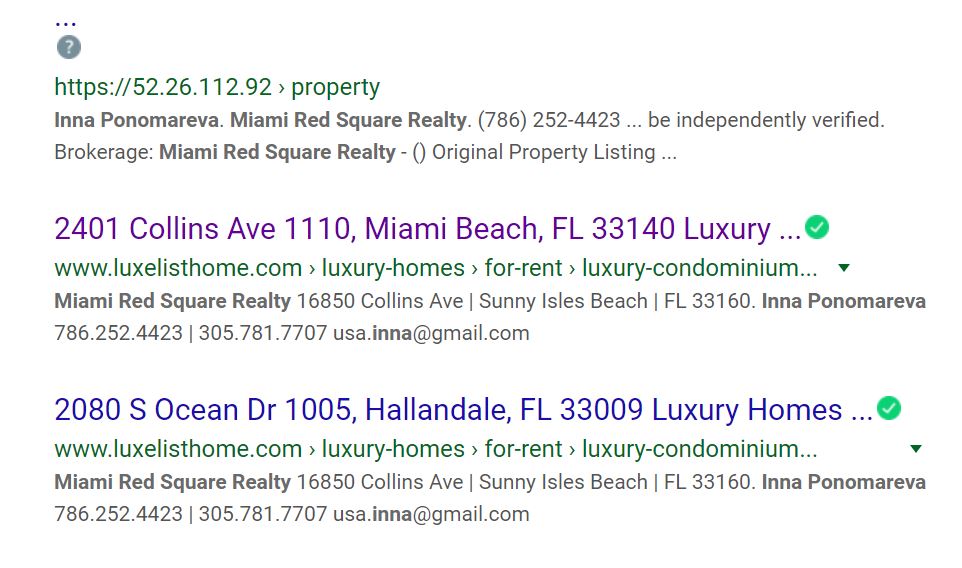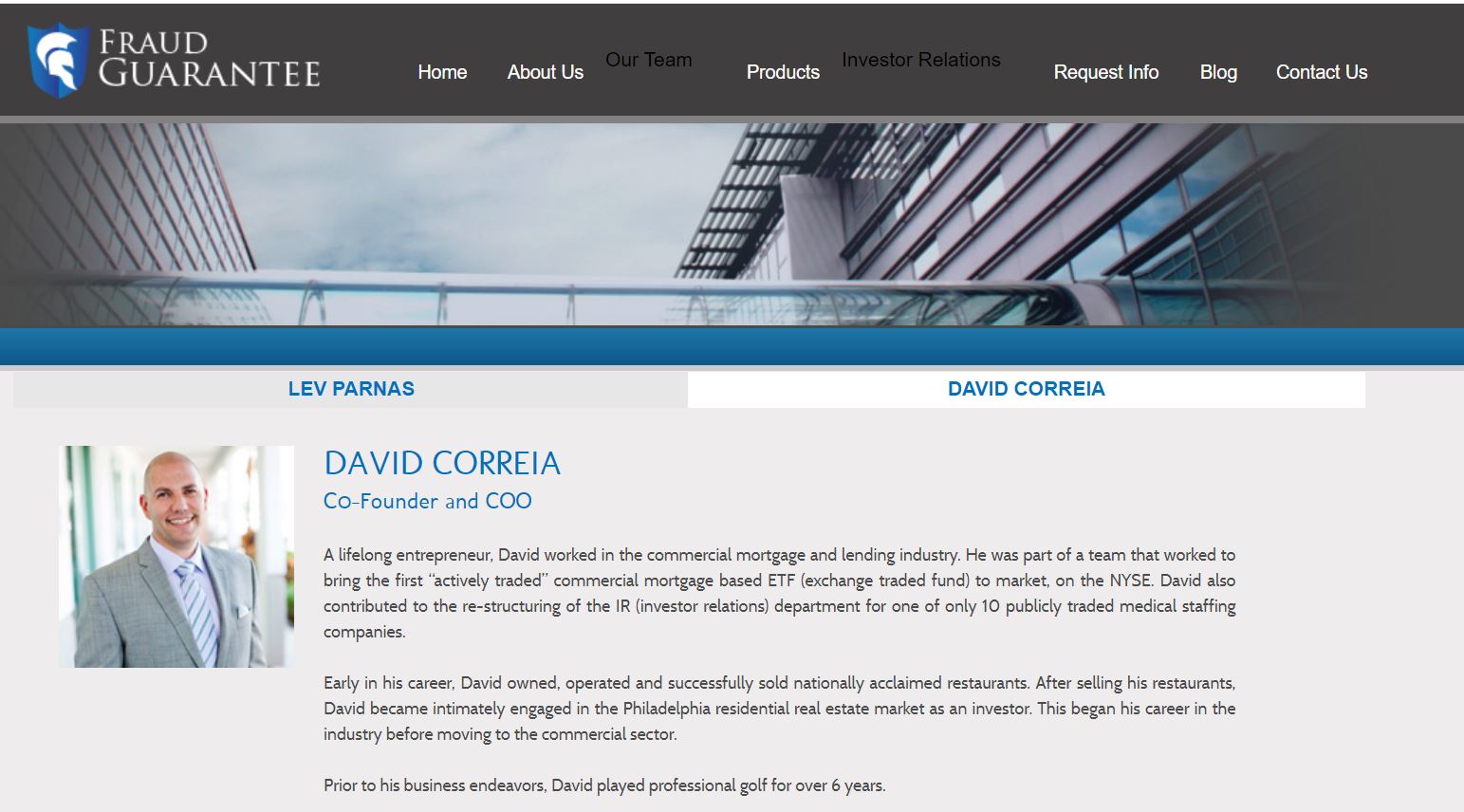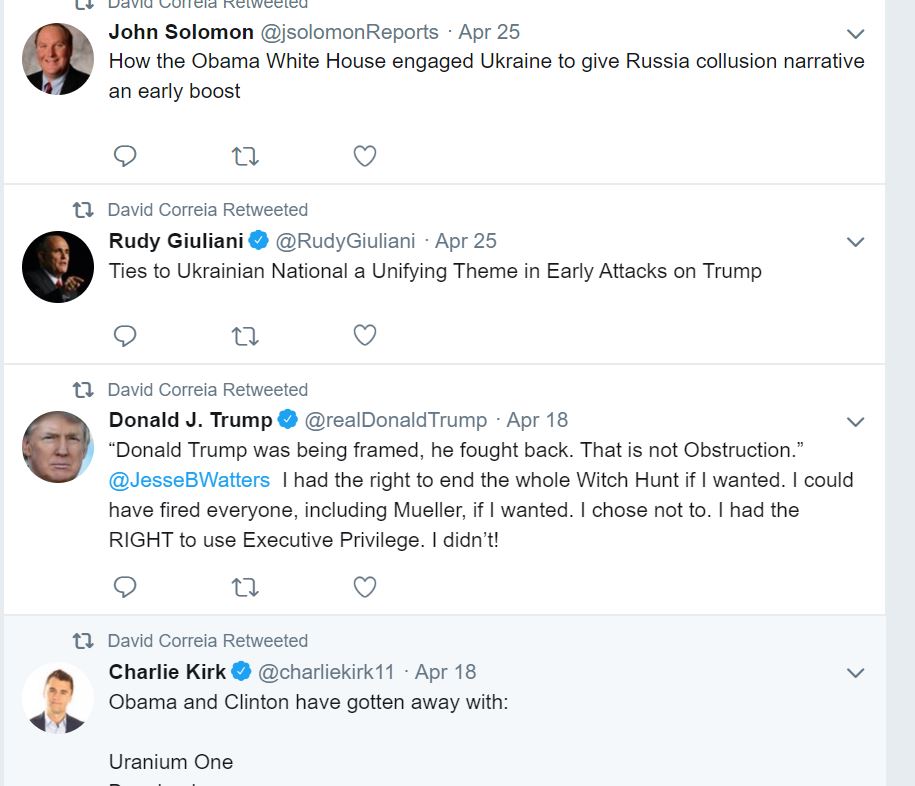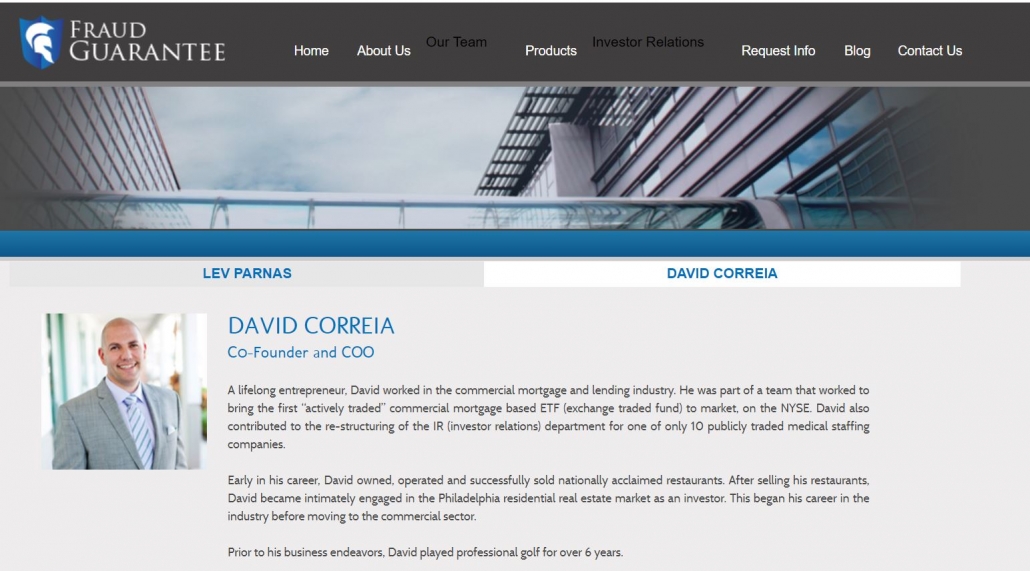Lev Parnas’ Gamble: The Three Nested Investigations
As I noted the other day, Lev Parnas has inserted himself, along with his co-defendants, in the middle of the presumed Special Master review of Rudy Giuliani and Victoria Toensing’s seized devices. He’s doing so as part of a strategy he has pursued since shortly after he was arrested to either make his prosecution unsustainable for Donald Trump (that strategy has presumably failed) or to bring a whole lot of powerful people — possibly up to and including Trump — down with him. The Special Master review will be critical to this strategy, because it will determine whether material that might otherwise be deemed privileged can be reviewed by the Southern District of New York as evidence of a cover-up of crimes that Donald Trump committed.
In this post, I will lay out how there are two — and if Lev is successful, three — sets of crimes in question, each leading to the next.
1a, Conspiracy to donate money: 18 USC 371, 52 USC 30122, 18 USC 1001, 18 USC 1519 and 2, and 18 USC 371, 52 USC 30121.
The first set of crimes pertain to efforts by Parnas, Igor Fruman, and two co-defendants, to gain access to the Republican Party with donations prohibited by campaign finance law. They were first charged — as Parnas and Fruman were about to fly to Vienna to meet with Victor Shokin — on October 9, 2019. The charges relate to allegations that they used their company, Global Energy Partners, to launder money, including money provided by a foreigner, to donate to Trump-associated and other Republican candidates.
These charges almost certainly arose out of a complaint and then a follow-up by Campaign Legal Center.
The overall motive of these crimes, as described, was basically grift: to improve their connections to facilitate a fairly dodgy business proposition. One prong of the business, explicitly funded by a Russian businessman, involved funding recreational marijuana efforts.
But along the way, one of their alleged acts was to give Pete Sessions $20,000 in a way that associated that donation with an effort to get rid of Marie Yovanovitch, possibly on behalf of Yuri Lutsenko.
[T]hese contributions were made for the purpose of gaining influence with politicians so as to advance their own personal financial interests and the political interests of Ukrainian government officials, including at least one Ukranian government official with whom they were working. For example, in or about May and June 2018, PARNAS and FRUMAN committed to raise $20,000 or more for a then-sitting U.S. Congressman [Sessions],
[snip]
At and around the same time PARNAS and FREEMAN committed to raising those funds for [Sessions], PARNAS met with [Sessions] and sought [his] assistance in causing the U.S. Government to remove or recall the then-U.S. Ambassador to Ukraine.
1b, Conspiracy to donate money: 18 USC 371, 52 USC 30122, 18 USC 1001, 18 USC 1519 and 2, and 18 USC 371, 52 USC 30121, 18 USC 1349.
The campaign finance indictment was superseded on September 17, 2020 to add a fraud charge associated with Parnas and David Correia’s Fraud Guarantee, which literally was a fraud claiming to insure people against losses from fraud. They got a bunch of investors to invest in the business based on false representations, which Parnas (and to a lesser degree, David Correia) allegedly spent on his personal expenses. The superseding indictment took out the charge related to Yovanovitch.
Shortly after this superseding indictment, Correia flipped, entering into a plea agreement.
2, Foreign influence peddling: 22 USC §§612 and 618, 18 USC §951, 18 USC §2, and 18 USC §371
As you can see already, the first indictment against Parnas and Fruman pertained to an effort — to get Yovanovitch fired — that they were undertaking with Rudy Giuliani. And the superseding indictment adds fraud associated with the Fraud Guarantee they used Rudy’s name to help sell. So Rudy was bound to get dragged into this.
According to a letter submitted by Rudy Giuliani’s lawyer, he is being investigated for a bunch of influence-peddling crimes: FARA, acting as an unregistered Foreign Agent, abetting, and conspiracy.
This investigation may have come out of the way that the whistleblower complaint that launched Trump’s first impeachment magnified an OCCRP profile of Parnas and Fruman’s influence-peddling (which incorporated the profile), and the way that impeachment magnified the influence-peddling that Rudy and the grifters were involved with. The letter that failed to redact the targets of the warrants associated with Rudy listed two of the key players in the OCCRP profile, Yuri Lutsenko and Alexander Levin (Roman Nasirov is the one other person, in addition to Rudy and Victoria Toensing, who was targeted).
Indeed, even as impeachment was rolling out, during the period where Parnas was discussing cooperating with SDNY, he was refusing to admit that some foreigner — likely Lutsenko — was behind all this.
And it seems pretty clear that Parnas and Fruman are subjects of this investigation, too. The government’s response to Parnas’ request for discovery describes that he was notified of search warrants targeting him in January of this year (shortly after Joe Biden’s inauguration).
3. Parnas’ hoped for obstruction investigation
From the start, Parnas has been alleging — credibly — that at least the timing of his arrest was an effort to protect the President and maybe even to shut him up. From early on, he used impeachment as a way to share materials obtained in discovery showing Rudy’s central role in it all. In January 2020, Parnas filed a letter he sent to Billy Barr requesting his recusal, based in part off a claim that DOJ delayed production of discovery past the time he could share it with the impeachment inquiry (in reality, the delay was partly due to the time it took to crack the password to Parnas’ phone). In December, Parnas filed a motion to dismiss his indictment, alleging selective prosecution. He focused closely on the events leading up to impeachment (and falsely suggested these events started in 2019, not 2018). Amid a list of all the times Barr corruptly intervened to protect the President, Parnas described how, just as HPSCI was asking for his testimony, he and Fruman were arrested.
Later that day, Dowd wrote to HPSCI, 6 as he had indicated he would in his e-mail: Kindly refer to my letter of October 3, 2019. This is an update. We continue to meet with Mr. Parnas and Mr. Fruman to gather the facts and documents related to the many subjects and persons detailed in your September 30 letter and to evaluate all of that information in light of the privileges we raised in our last letter. This effort will take some additional time. Accordingly, Messrs. Parnas and Fruman will not be available for depositions scheduled for October 10, 2019. The following day, October 9, 2019, Mr. Parnas met with Mr. Giuliani at the BLT Steakhouse in the Trump Hotel, Washington DC. Mr. Parnas was scheduled to travel later that evening to Frankfurt, Germany, and then on to Vienna, Austria, to meet with the former Prosecutor General of Ukraine, Victor Shokin, to prepare him for an appearance on FOX News’ Shawn Hannity Show to discuss Joe Biden. Although Mr. Giuliani, along with Victoria Toensing and Joseph DiGenova, had originally been scheduled to travel to Vienna with Parnas, Toensing and DiGenova had cancelled several days earlier, and Mr. Giuliani cancelled that day.
After finishing meeting with Mr. Giuliani, Mr. Parnas and Mr. Fruman took a car to Dulles International Airport, where they waited in the Lufthansa lounge for approximately two hours before beginning to board their flight. Unbeknownst to Messrs. Parnas and Fruman, they had been indicted in the SDNY earlier that day.
Parnas also described others involved in his illegal campaign finance activities who were not indicted, including America First Action PAC and Kevin McCarthy.
Among the things Parnas asked for was evidence that was already being collected in the second, influence-peddling investigation.
All internal documents, including memoranda, notes, e-mails, and text messages that, in any way, reference the reasons why individuals and entities including but not limited to, America First Super PAC, [redacted], Rudy Giuliani, President Donald J. Trump, Victoria Toensing, Joseph DiGenova, and John Solomon, were not arrested or charged with Mssrs. Parnas and Igor Fruman;
The government dismissed Parnas’ claim as lacking evidence but also said that some of the materials he was asking for would be covered by various privileges.
Because Parnas’s claim is meritless, the Court need not consider the contours of his discovery request (Parnas Mot. 32-33), but multiple of his requests seek materials that, if they exist, appear to be attorney work product, covered by the deliberative process privilege, and/or are outside of the scope of what would be reasonably necessary to try to advance his asserted claims rather than to gain a strategic advantage at trial.
Judge Oetken has not yet ruled on Parnas’ selective prosecution claim (or a bunch of other pre-trial motions from all defendants).
But as I noted, just the other day, Gordon Sondland provided more evidence of a corrupt cover-up pertaining to impeachment.
In his redaction fail letter, Parnas addressed very specific things he believed to exist to show a cover-up just before the influence peddling warrants got sent out, including emails he deleted.
The seized evidence will also likely contain a number and variety of communications between Giuliani and Toensing and Parnas that are directly discoverable under Fed. R. Crim. P. 16, evidence of any conversations between Giuliani, Toensing, and others, including Parnas, that may have been deleted, communications between Giuliani, Toensing and others about the defendants and how to address their prior relationships, the arrests, and the unfolding investigation, communications between Giuliani and Toensing and others with potential Government witnesses, including communications about the defendants, the offenses charged, and the witnesses’ potential disclosures and characterizations of alleged fraud-loss computations.
If Rudy and Toensing didn’t delete these materials, then they are now in US government custody. And Parnas is doing all he can to make sure the government looks at them.


